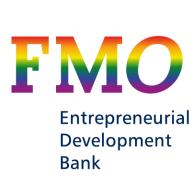Every year, FMO’s evaluations team conducts an in-house corporate evaluation into the development impact of FMO. The 2020 Corporate Evaluation focused on one of FMO’s core SDGs: SDG 10 - Reducing Inequalities.
The aim of these corporate evaluations is to learn from past experiences and identify ways to increase FMO’s development impact and additionality.

The SDG 10 Corporate Evaluation (2015 – 2020)
This evaluation assesses FMO’s contribution to SDG 10 through its investments, their financial and non-financial additionality and mobilization (accountability) and provides recommendations on impact opportunities to the investment strategy of FMO (organizational learning). In addition, it sheds light on areas for improvement and opportunities to increase impact by comparing current activities against the largest development gaps for SDG 10. FMO’s contribution is established by analyzing SDG 10 labeled investments between 2015 and July 2020. To identify a potential connection between FMO’s E&S work –e.g. support to customers to increase the environmental and social standards - and SDG 10, the evaluation reviewed a sample of all FMO investments (both labeled and non-RI labeled transactions).
The report highlights that worldwide inequalities have been decreasing over time. However, the gap between low-income and high-income countries is increasing and within many populous countries, inequalities also increased. Moreover, the global COVID-19 pandemic is also exacerbating disparities. Therefore, contributing to SDG 10 is more important than ever. However, economic growth alone will not reduce inequalities: for that purpose, we need interventions specifically targeted at Least Developed Countries (LDCs) or to the bottom 40% of the population within each country.
Meeting our targets
We found that FMO has done well when measured against its own volume targets on Reducing Inequalities, with new investments labeled SDG 10 maintaining a stable level of 31% in recent years. FMO contributed to SDG 10 through all focus sectors, but the Financial Institutions sector contributed most significantly to FMO’s overall SDG 10 impact, thanks in part to its large inclusive business portfolio.
FMO finance of €1.5 bln was dedicated to reducing inequalities among countries by investing in LDCs between 2015 and H1 2020. However, the share of investments in LDCs has decreased, while mobilization of other investors in LDCs increased sharply. At the same time, FMO invested € 784 mln in reducing within country inequalities by investing in Inclusive Businesses (IB) between 2018 and H1 2020. IB investments have increased slightly since 2018.
The evaluation results will inform the upcoming strategy cycle
The evaluation also provides recommendations in areas where FMO can improve. We take these seriously and our follow up is explained in full in the management letter (see below for link). Key recommendations relate to more coherence between FMO strategy and main development (inequality) gaps for the next strategy cycle. Another suggestion relates to consideration of adapting the Reducing Inequalities label to include more business models targeting populations in rural areas, and aligning impact indicators accordingly. Finally, the report points out the need to increase investments in LDCs, as FMO’s production, Foreign Direct Investments flows and Official Development Assistance to LDCs have also decreased in recent years, while financing needs are increasing due to COVID.


